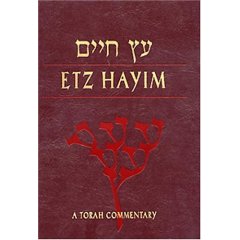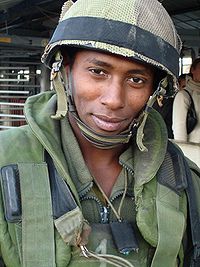 One of the most inspiring figures of my rabbinical school education was Rabbi David Lieber, with whom I studied Psalms and who was the editor of the Etz Hayim Humash, a Torah text and commentary that can be found in nearly every Conservative synagogue and that has greatly enriched how we view our biblical heritage.
One of the most inspiring figures of my rabbinical school education was Rabbi David Lieber, with whom I studied Psalms and who was the editor of the Etz Hayim Humash, a Torah text and commentary that can be found in nearly every Conservative synagogue and that has greatly enriched how we view our biblical heritage.I was saddened today when I learned that he had passed away late last night. The funeral services will be held in Los Angeles Thursday.
Rabbi Lieber was the kind of giant of Jewish scholarship that is so rarely found today -- for Rabbi Lieber, unlike for so many current scholars, there was no divide between the academic and the spiritual. When you studied Psalms with him, it was with the tools of modern scholarship in hand. But the atmosphere in the
 classroom was characterized by anything but the sterility we sometimes associate with the academic -- it was deeply spiritual.
classroom was characterized by anything but the sterility we sometimes associate with the academic -- it was deeply spiritual.His technique was slow and deliberate. Just as it was with the ancients and the medievals, Rabbi Lieber treated every word and turn of the text like there was the possibility to uncover infinite holiness beneath it. Rabbi Lieber knew that, as brilliant as the medieval scholars were, they had unfortunately lost something that the ancients knew so well -- the Psalms are poetry. For Rabbi Lieber, the value of modern scholarship is that it -- in things like its revival of the Hebrew language as a spoken tongue -- had reawakened us to the true depths of the beauty and poetry of the text. It had reawakened us to realize that the Psalms are songs that were meant to be sung -- meant to be sung at specific spiritual times and places.
Dr. Lieber, thank you so much for what you have given me. I am so deeply grateful to The Blessed Holy One that I had a chance to learn with you.
May his memory be a blessing.
____________
The services will take place at 11 a.m. on Thursday at the American Jewish University (formerly, the University of Judaism) where Rabbi Lieber was long the president. He is survived by his wife, Esther, and his children, Michael, Danny, Susie and Debbie. Notes of condolence may can be sent to his wife at, 305 El Camino, Beverly Hills, CA 90212.
____________
I had not been aware of this, but Rabbi Lieber served as a chaplain in the Air Force. He was born in Poland and grew up on the Lower East Side of Manhattan.
____________
It took them a few days to get around to it, but the New York Times finally wrote a nice obit-- focusing on the contribution that the Etz Hayim was for Judaism.





